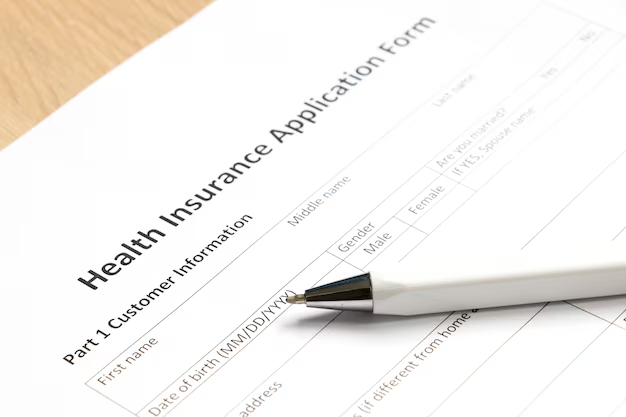Your Guide to What Does Medicare b Pay For
What You Get:
Free Guide
Free, helpful information about Medicare Insurance and related What Does Medicare b Pay For topics.
Helpful Information
Get clear and easy-to-understand details about What Does Medicare b Pay For topics and resources.
Personalized Offers
Answer a few optional questions to receive offers or information related to Medicare Insurance. The survey is optional and not required to access your free guide.
Understanding Medicare Part B Coverage: What It Pays For and More
Navigating the healthcare maze can be daunting, but an understanding of what Medicare Part B covers can make life much easier for those managing healthcare expenses. Medicare Part B is often referred to as medical insurance because it covers a wide range of outpatient and preventive services that are crucial to maintaining health and catching problems early.
What Medicare Part B Covers
Doctor Visits: Medicare Part B helps cover services from doctors, including primary care and specialists, whether it's for a chronic condition or a routine check-up.
Preventive Services: Routine check-ups, flu shots, screenings for conditions such as heart disease and diabetes, mammograms, and colonoscopies fall under the preventive services umbrella. These services are usually covered 100% when you see a participating provider.
Mental Health Services: Mental health is just as important as physical health. Part B offers coverage for mental health evaluations and procedures, whether you're receiving services from a psychiatrist, clinical psychologist, or therapist.
Durable Medical Equipment (DME): Items such as wheelchairs, walkers, hospital beds, and even some kinds of nebulizers and oxygen equipment are covered, as long as they are prescribed by a healthcare provider.
Lab Tests and X-rays: Blood tests, MRIs, CT scans, and some other diagnostic tests are covered to help diagnose and treat potential health issues.
Outpatient Services and Procedures: Whether it’s minor surgery or more advanced outpatient medical needs, Medicare Part B covers a wide variety of services performed in an outpatient setting.
Ambulance Services: When other transportation could endanger your health, ambulance services to the nearest appropriate facility are covered.
Clinical Research Studies: Participation in certain clinical research studies is also covered, aligning with Medicare's intention to embrace emerging medical innovation.
Expanding Your Financial and Healthcare Horizons
Understanding Medicare Part B coverage is just a stepping stone. As you age, you might require additional support or benefits beyond what Medicare alone provides. That's where additional resources can become essential.
For those finding it hard to manage healthcare and daily expenses, government aid programs, financial assistance services, or even educational grants might offer support. These resources ensure not only your healthcare needs are handled but also assist with broader financial stability. Exploring options like credit card solutions or debt relief programs can also alleviate some financial stress.
If you’re struggling with healthcare costs or other financial aspects, it's worth exploring government and educational resources designed to provide assistance and relief to those in need.
Your Handy Guide to Financial Assistance and Support
- 💼 Government Aid Programs: Explore programs that provide financial help with healthcare, rent, utilities, and more.
- 🚑 Healthcare Financial Assistance: Many hospitals offer financial assistance programs to make healthcare more affordable for those in need.
- 💳 Credit Card Solutions: Balance transfer options and low-interest rates can help manage credit card debts more effectively.
- 📚 Educational Grants: For seniors interested in lifelong learning, many colleges offer tuition waivers or discounts on classes.
- 📈 Debt Relief Options: Consider consulting a financial advisor to explore consolidation or settlement options if debts become overwhelming.
- 🏠 Housing Assistance: Programs like HUD can offer support to seniors needing assistance with housing-related costs.
By understanding your Medicare coverage and tapping into available financial and educational resources, you can build a well-rounded approach to managing both your health and financial well-being.
What You Get:
Free Medicare Insurance Guide
Free, helpful information about What Does Medicare b Pay For and related resources.

Helpful Information
Get clear, easy-to-understand details about What Does Medicare b Pay For topics.

Optional Personalized Offers
Answer a few optional questions to see offers or information related to Medicare Insurance. Participation is not required to get your free guide.


Discover More
- Am I Elgible For Medicare
- Am I Enrolled In Medicare
- Am I Qualified For Medicare
- Are Adult Diapers Covered By Medicare
- Are Chemotherapy Drugs Covered By Medicare Part d
- Are Colonoscopies Covered By Medicare
- Are Covid Tests Covered By Medicare
- Are Cpap Machines Covered By Medicare
- Are Cpap Supplies Covered By Medicare
- Are Dental Implants Covered By Medicare
